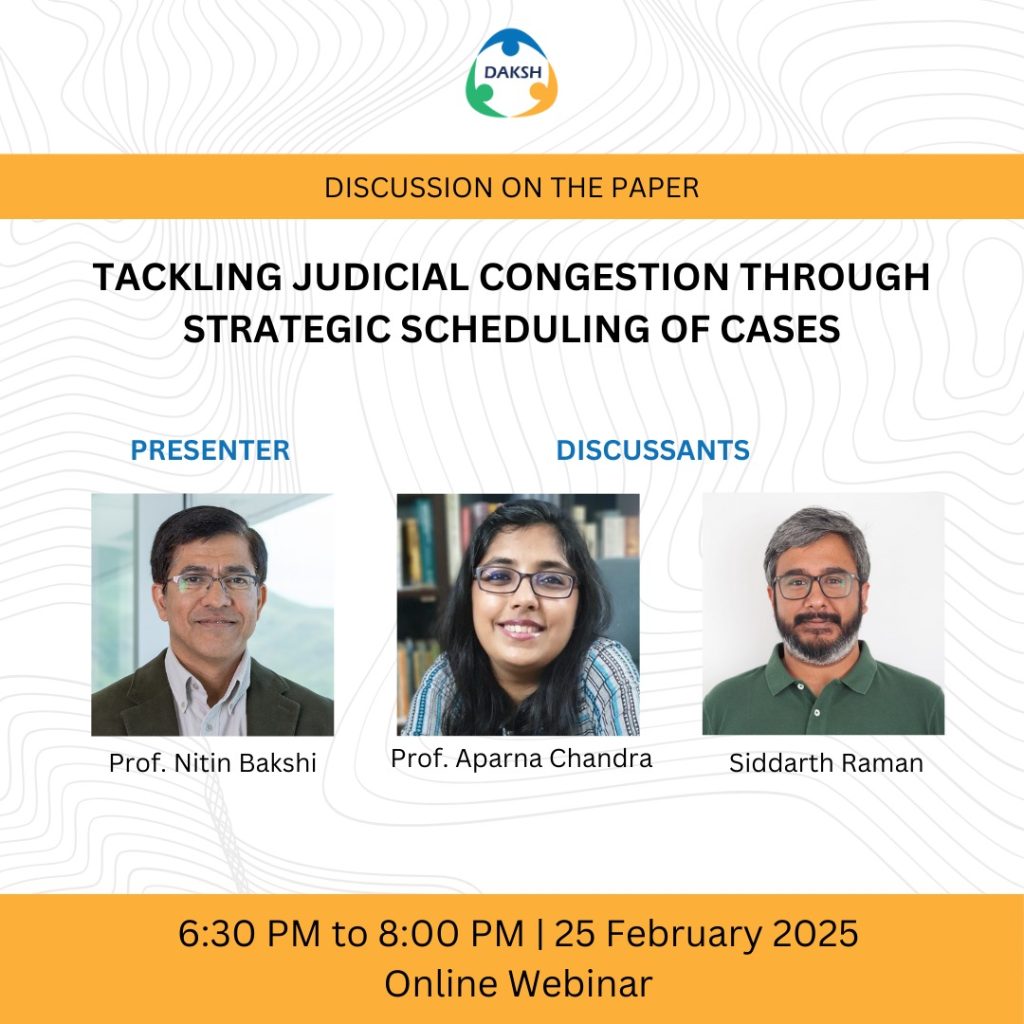Using photographs and archival documents, Vikram Raghavan focused on the work of George Gadbois, an American political scientist who spent several decades studying the Indian judiciary.

EVENTS
Webinar on Tackling Judicial Congestion Through Strategic Scheduling of Cases
DAKSH invites you to a thought-provoking webinar on improving judicial efficiency through better case scheduling. This session will feature a discussion on the paper “Service Operations for Justice-on-Time: A Data-Driven Queueing Approach,” by Nitin Bakshi, Jeunghyun Kim, and Ramandeep S. Randhawa, which explores innovative ways to reduce judicial delays by up to 65%—without increasing the number of judges.
The paper, using data from the Supreme Court of India, challenges the conventional wisdom that judicial backlogs can only be solved by appointing more judges. Instead, the research highlights how strategic scheduling and capacity allocation can significantly improve efficiency. By identifying key bottlenecks and reallocating judicial resources more effectively, the study presents a practical, data-driven solution to one of India’s most pressing judicial challenges.
Time: 6:30 PM – 8:00 PM
Webinar on Fast-tracking M&A Approvals and the NCLT
DAKSH is pleased to invite you to a webinar on “Fast-tracking M&A Approvals and the NCLT“, part of our Transforming Tribunals in India series.
With NCLT handling a heavy caseload and recent proposals to streamline M&A approvals, this discussion will bring together key experts to explore the implications of these changes on corporate transactions, regulatory oversight, and tribunal efficiency.
Time: 11:00 AM IST
Mode: Online
EVENTS VIDEOS
Constitution Day Lecture
PAST EVENTS

-
Rule of Law ProjectRule of Law Project
-
Access to Justice SurveyAccess to Justice Survey
-
BlogBlog
-
Contact UsContact Us
-
Statistics and ReportsStatistics and Reports
© 2021 DAKSH India. All rights reserved
Powered by Oy Media Solutions
Designed by GGWP Design

